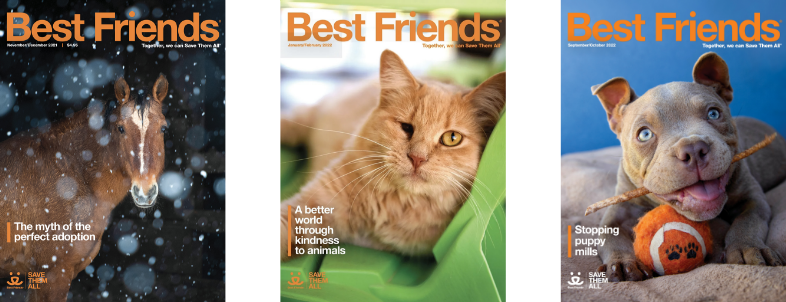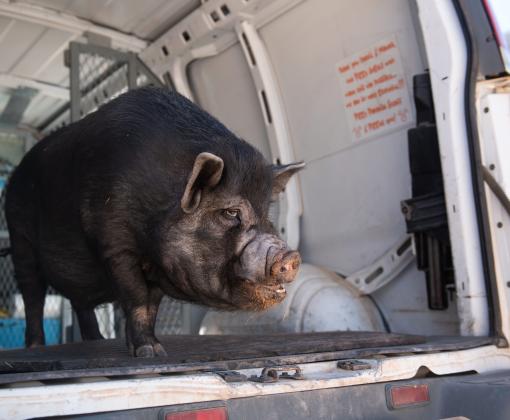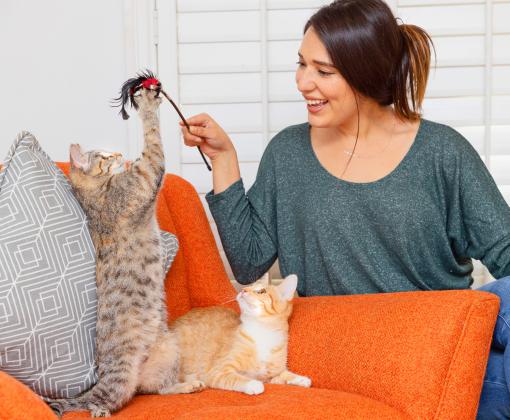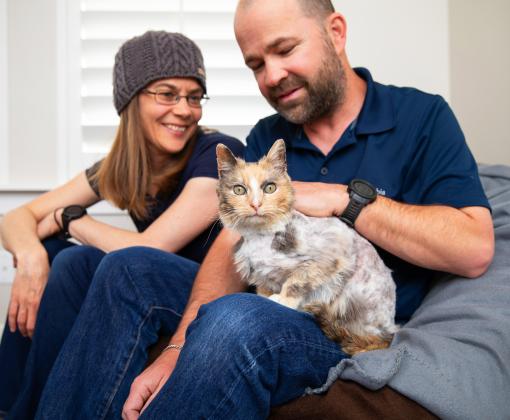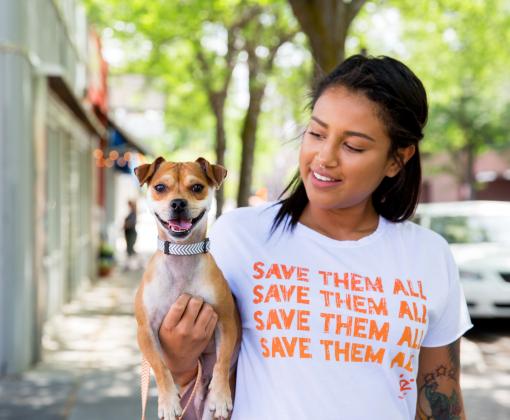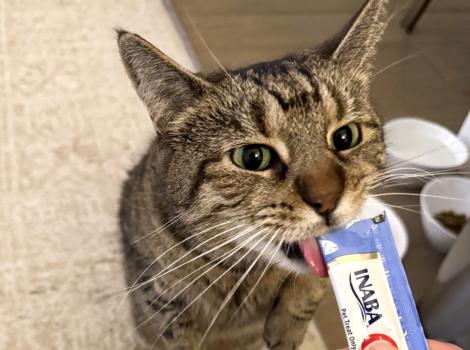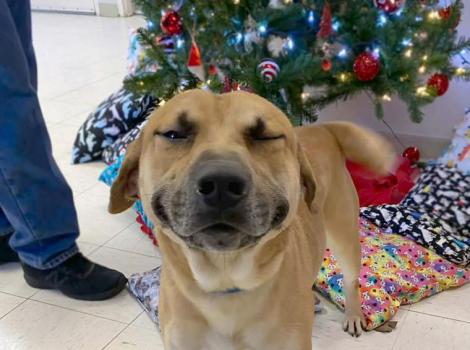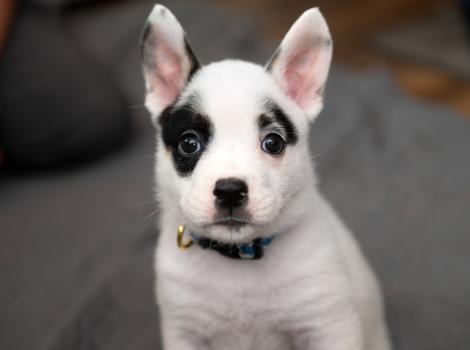Fun and games for pigs
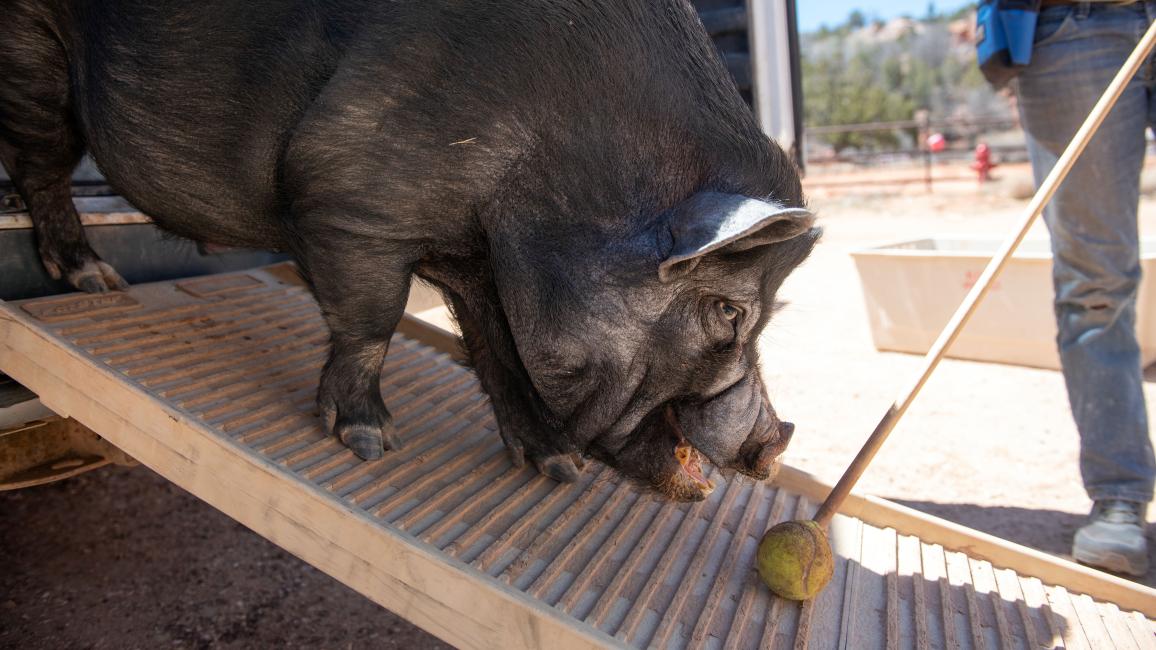
It’s a sunny afternoon, and the concentrated sound of Smitty smacking on his snack punctuates a lull in conversation. The peanuts are his A+, his gold star; he’s done a good job, and he’s going to savor it. He climbed right up on the scale, stayed, and trundled back off. He’s done it dozens of times, but this pig doesn’t mind playing teacher’s pet. It’s fun, but it’s also an important learning experience.
Smitty is helping lifesaving and care specialist Hailey Adams with a training demonstration. Together, they’re showing other members of the Marshall’s Piggy Paradise and Horse Haven team at Best Friends Animal Sanctuary how to work with the rest of their porcine pals. To keep things moving smoothly in the canyon — and to get ready for the future, when each little piggy goes "wee, wee, wee" all the way home — there are a few tricks to master. And the pigs are talented testers, especially when treats are involved.
Teaching animals important life skills
“Everything we’re working on we call life skills,” explains Hailey. “The pigs need to know how to get into a vehicle because chances are they’ll need to be driven somewhere in their life. They need to know how to get into a crate, they need to let us trim their feet, they need to let us weigh them, and they need to be used to the vet room."
It’s an important skill set for most pets, and pigs are no exception. Of course, a stubborn swine is not as simple to handle for a nail trim as, say, a finicky feline might be, which means having good understanding between person and pig is particularly important. Hailey honed her cross-species communication working with chimpanzees before coming to Best Friends, teaching them how to cooperate with veterinarians and the people who cared for them. And she has turned that knowledge toward pigs. It’s all about lots of yummy snacks, encouragement, and making sure the trainee is having a good time.
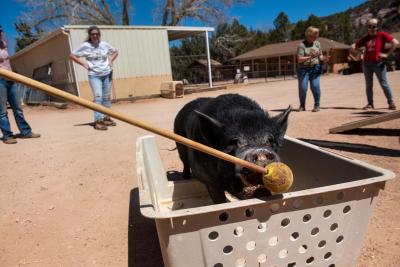
How to train pigs
The main tool of the trade is a target stick with a tennis ball on the end to help lead the pigs to their goal. The second, but no less important, is a treat pouch. Rewards are based on the pig’s preferences and how challenging the task is — usually almonds are for things they can breeze through, while Fig Newtons are a treasure saved for tricky tasks.
[Target stick training for pigs]
Once they know they’ll get a tasty treat for sticking their snout on the target stick, they’ll follow it anywhere. First step? Loading into the van. “Anything that’s kind of a small, enclosed space is very scary for the pigs since they’re a prey animal,” Hailey says. “So we start with the van because, while it is an enclosed space, it’s a big enclosed space.”
Initially, star pupil Smitty had some trouble just getting past the ramp. When he’d fumble and stumble off the side of it, though it was only a short drop, he’d squeal and holler like the sky was falling. But despite some dramatics, he had the tail-wiggling determination to try, try again, and soon he was in the van with Hailey and out the back again.
Crate training
Next, it’s crate training: a step down in size but a step up in difficulty. “The crate’s a little bit more complicated; they have to think a bit more,” says Hailey. She explains that they build up to a full, closed crate, starting with just the bottom of a kennel sitting on the ground. It’s easy and approachable, and the pigs can follow the target stick straight in.
After that, they go through the “crate tunnel," a compartment with the back cut out — a tighter squeeze but still not too intimidating. Then, it’s the doorless carrier. This part can be a bit trickier because the target stick is on the outside. Some pigs are too clever for this, side-stepping the crate to go directly for the target stick. But once they have that figured out, and the door goes back on, they’ve accomplished crate training.
Some pigs find the vet visit the hardest. Doorways and thresholds are a sticking point for many of them, and climbing onto a clattery scale is a bit scary (understandable). “I’m also working on a behavior called ‘hold,’” Hailey notes. “Basically, you put the tennis ball on their nose, and they have to stay still. The idea is that we’ll be able to examine them physically, maybe even give them injections, play with their feet, (trim) their tusks, that kind of thing.”
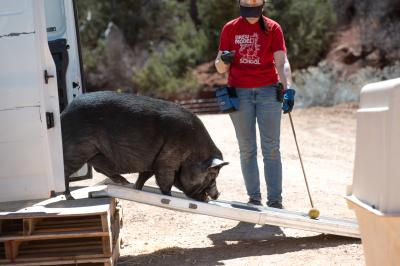
Taking pigs for a walk
The lessons from swine school carry over into the rest of life, as well. On nice days, the Sanctuary’s rotund residents enjoy walks with caregivers and volunteers, though they often have their own thoughts on where to go and how long said walks should be. “A lot of our pig walks were really unstructured, and we’d have pigs veer off into the horse pastures,” Hailey says with a laugh. “So having them more focused on us, following us, is a big deal for these guys.”
For Smitty, those lessons have also meant a boost in confidence. Rather than being concerned about the sky — or himself — falling, now when he leaves his paddock, it’s with squeals of delight. He’s always ready to climb into a van or crate, declare himself king of the scale, or trot down the road alongside a new friend.
The big trouble is convincing him to go home when the fun’s finished. In fact, many of the pigs feel the same. “Going back is usually the hardest part; they never want to go back,” says Hailey. “That’s when the treats stop.”
A jackpot (a big handful of treats) back at home helps. And there’s always tomorrow’s training to look forward to.
This article was originally published in the July/August 2023 issue of Best Friends magazine. Want more good news? Become a member and get stories like this six times a year.
